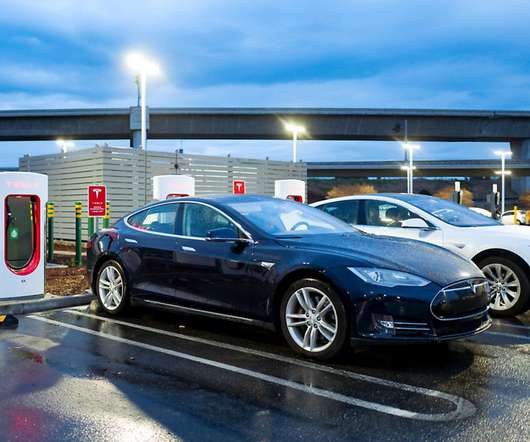Toyota and Denso develop SiC power semiconductor for power control units; targeting 10% improvement in hybrid fuel efficiency
Green Car Congress
MAY 20, 2014
Toyota intends to leverage the benefits of high frequency and high efficiency of SiC power semiconductors to enable PCU downsizing of 80%. Toyota CRDL), has developed a silicon carbide (SiC) power semiconductor for use in automotive power control units (PCUs). Right :PCU with SiC power semiconductors (Future target).























Let's personalize your content